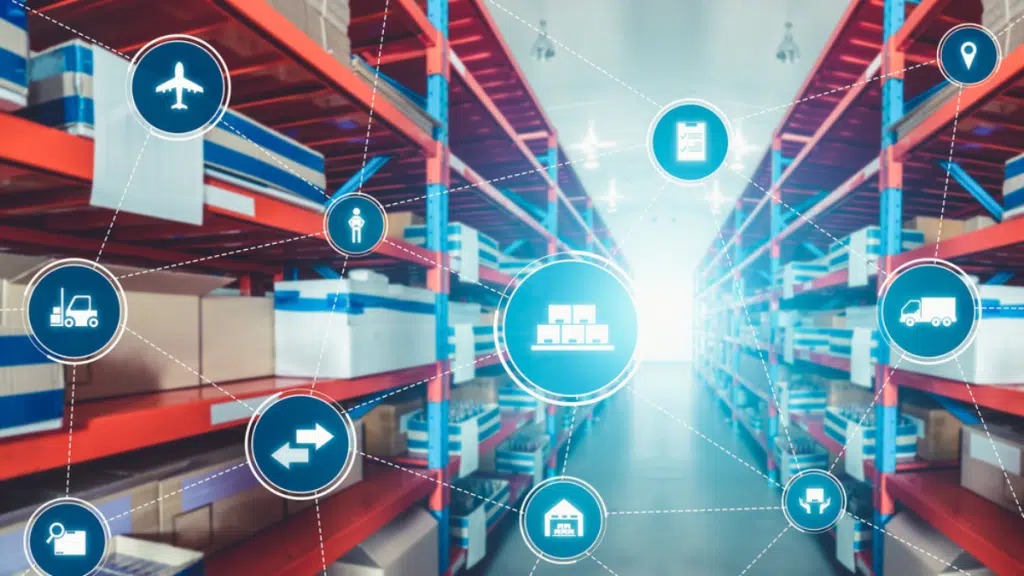In today’s fast-paced global economy, logistics and transportation are at the core of every successful business. From eCommerce brands delivering products worldwide to manufacturers managing large supply chains, the need for accuracy, speed, and cost-effectiveness has never been greater. This is where logistics software development becomes a game-changer.
By leveraging digital platforms tailored to the industry, companies can gain real-time visibility, automate critical processes, and make smarter decisions. A reliable logistics software development company provides businesses with the tools they need to streamline operations, reduce costs, and stay competitive in a constantly evolving marketplace.
What is Logistics Software Development?
Logistics software development refers to the design, creation, and implementation of digital platforms that support transportation, warehouse management, freight forwarding, supply chain optimization, and last-mile delivery. Unlike generic software, logistics platforms are built to address industry-specific challenges such as load planning, fleet tracking, order fulfillment, and inventory control.
For example, a logistics company might need a system to manage hundreds of trucks across multiple cities. With custom logistics software development, that company can track fuel usage, optimize delivery routes, and monitor vehicle maintenance in real time. This level of insight and control leads to reduced downtime, improved customer satisfaction, and higher profitability.
Why Businesses Choose Custom Logistics Software Development
While off-the-shelf software solutions exist, most businesses prefer custom software development for logistics because every company has unique workflows, client requirements, and operational challenges.
Benefits of Custom Logistics Solutions:
- Tailored to Your Needs
Unlike generic platforms, custom logistics software development ensures that the solution perfectly fits your company’s operations. Whether you manage a small fleet or a global supply chain, custom software adapts to your exact requirements. - Scalability
As your business grows, so do your logistics challenges. Custom solutions are designed to scale, making it easier to integrate new features, clients, or geographies. - Seamless Integration
A strong logistics software development company will create software that integrates with your existing ERP, CRM, accounting, and eCommerce platforms. This eliminates data silos and boosts efficiency. - Advanced Analytics
Modern logistics systems include AI-powered analytics, which provide insights into demand forecasting, cost optimization, and supply chain performance. - Competitive Advantage
Tailored transportation software development and logistics platforms allow companies to respond faster to market changes, ensuring they remain ahead of competitors.
Types of Logistics Software Development Services
A professional logistics software development company typically provides a wide range of services to cover all areas of logistics and transportation. These include:
1. Transportation Software Development
Custom-built Transportation Management Systems (TMS) help businesses optimize routes, reduce fuel costs, and monitor vehicle performance. With transportation software development, companies can digitize dispatching, automate freight billing, and provide real-time shipment visibility.
2. Warehouse Management Systems (WMS)
Efficient warehouse operations are critical for customer satisfaction. A custom WMS manages inventory, automates picking and packing, and ensures orders are fulfilled on time.
3. Supply Chain Management (SCM) Platforms
Logistics software development services also cover end-to-end supply chain solutions. SCM platforms provide transparency across suppliers, distributors, and customers, enabling smoother workflows.
4. Fleet Management Software
For companies operating large fleets, fleet management systems track vehicle location, driver performance, and maintenance schedules. This ensures safe and efficient fleet utilization.
5. 3PL Software Solutions
Third-Party Logistics providers often need SaaS platforms to manage multi-client operations. Custom 3PL software handles client onboarding, billing, contract management, and order fulfillment.
Choosing the Right Logistics Software Development Company
When investing in custom logistics software development, selecting the right partner is crucial. Here are key factors to consider:
- Industry Expertise – Choose a company with proven experience in transportation, supply chain, and warehouse automation.
- Integration Capabilities – Ensure the provider can connect your logistics software with existing systems like SAP, Oracle, or Shopify.
- Security & Compliance – Logistics software often processes sensitive client and financial data, so strong security measures are essential.
- Customization Options – Your business should never have to compromise its processes to fit into software. Look for tailored solutions.
- Post-Launch Support – A reliable partner provides ongoing updates, bug fixes, and technical support to keep your systems running smoothly.
A trusted logistics software development company not only delivers solutions but also becomes a long-term technology partner for your business growth.
Real-World Impact of Logistics Software Development
The results of investing in logistics software development services can be transformational. Businesses that adopt modern logistics platforms often report:
- 30–40% reduction in operational costs due to automation.
- Increased delivery accuracy, with real-time route optimization.
- Faster decision-making, thanks to AI-driven data analytics.
- Higher customer satisfaction, as clients enjoy greater transparency and reliability.
For instance, a transportation company implementing custom software development for logistics can track shipments from pickup to delivery, automate driver assignments, and provide customers with live tracking updates. These features not only improve efficiency but also build trust with clients.
The Future of Logistics Software Development
The logistics industry is rapidly evolving, and logistics software development services are adapting with advanced technologies. Some trends shaping the future include:
- Artificial Intelligence (AI): Enhancing demand forecasting and predictive maintenance.
- Internet of Things (IoT): Connecting vehicles, warehouses, and assets for real-time monitoring.
- Blockchain: Securing transactions and ensuring transparency in supply chains.
- Automation & Robotics: Streamlining warehouse operations through automated picking, packing, and shipping.
Companies that embrace these innovations through custom logistics software development will gain a significant advantage in the coming years.
Conclusion
In a competitive business environment, efficiency and innovation are key to success. Partnering with a trusted logistics software development company enables businesses to automate workflows, optimize transportation, and improve supply chain visibility.
Whether it’s transportation software development, custom software development for logistics, or full-scale logistics software development services, investing in tailored digital solutions ensures long-term growth and customer satisfaction.
By adopting custom logistics software development, businesses position themselves to lead in a dynamic, technology-driven logistics world.



































